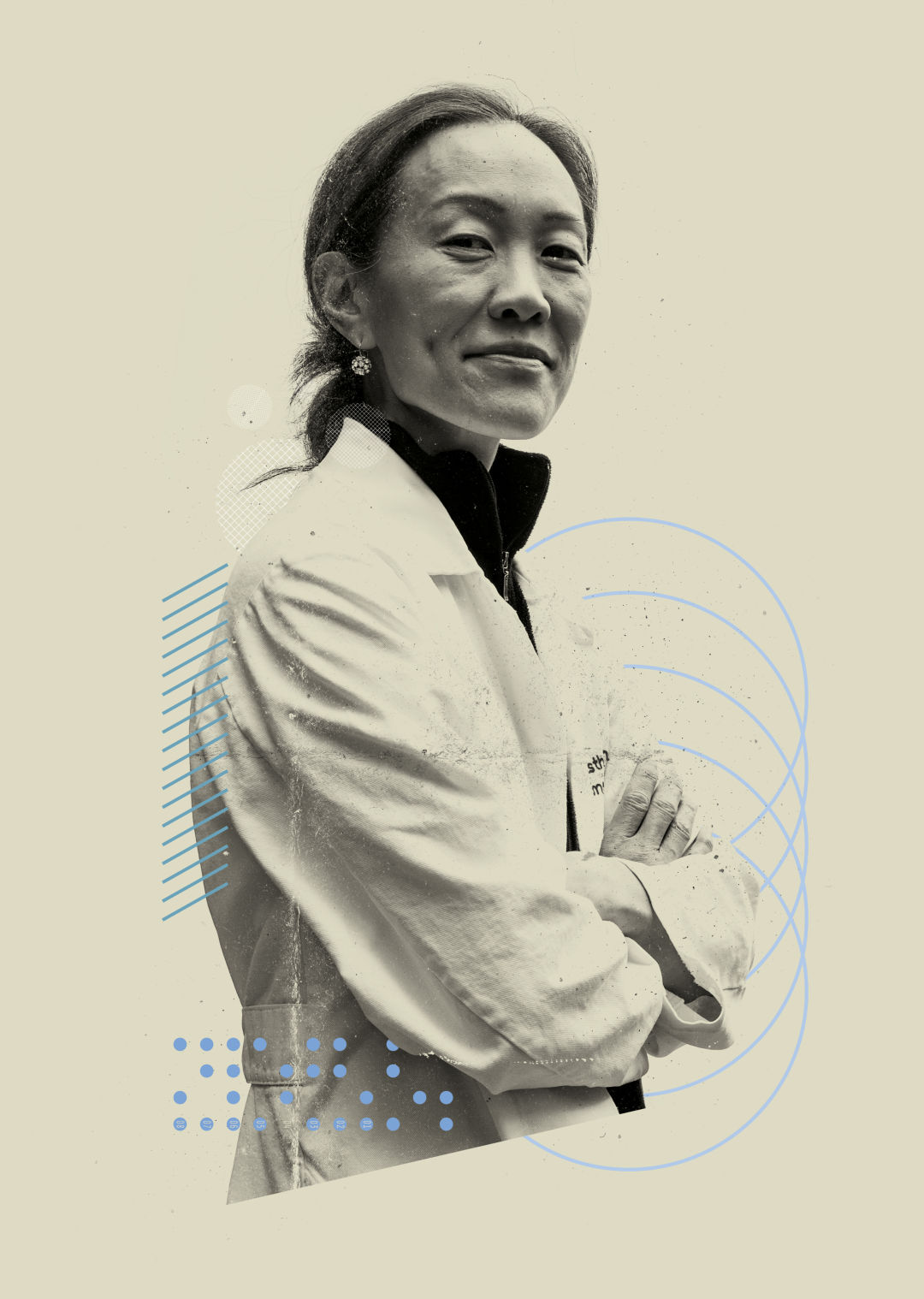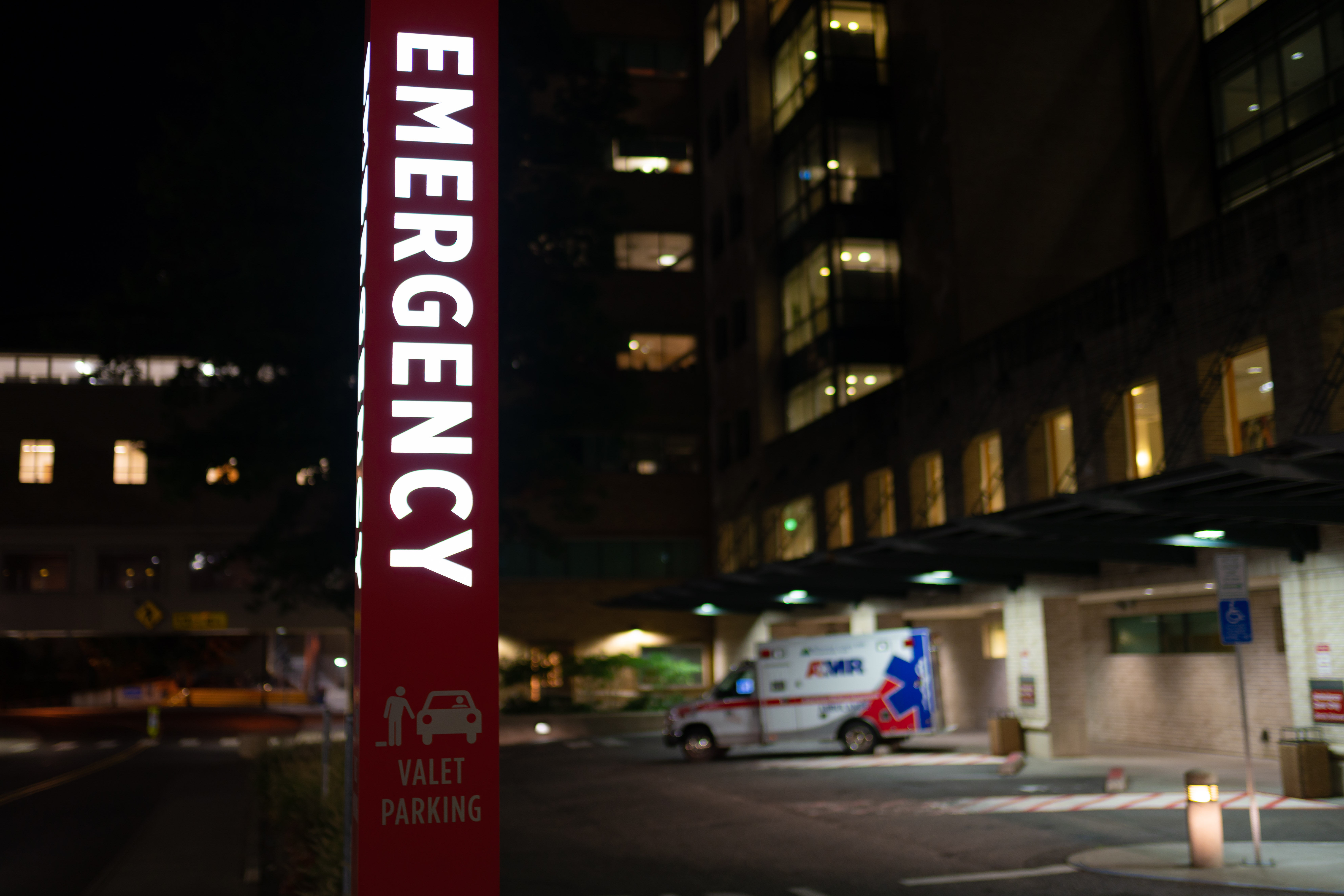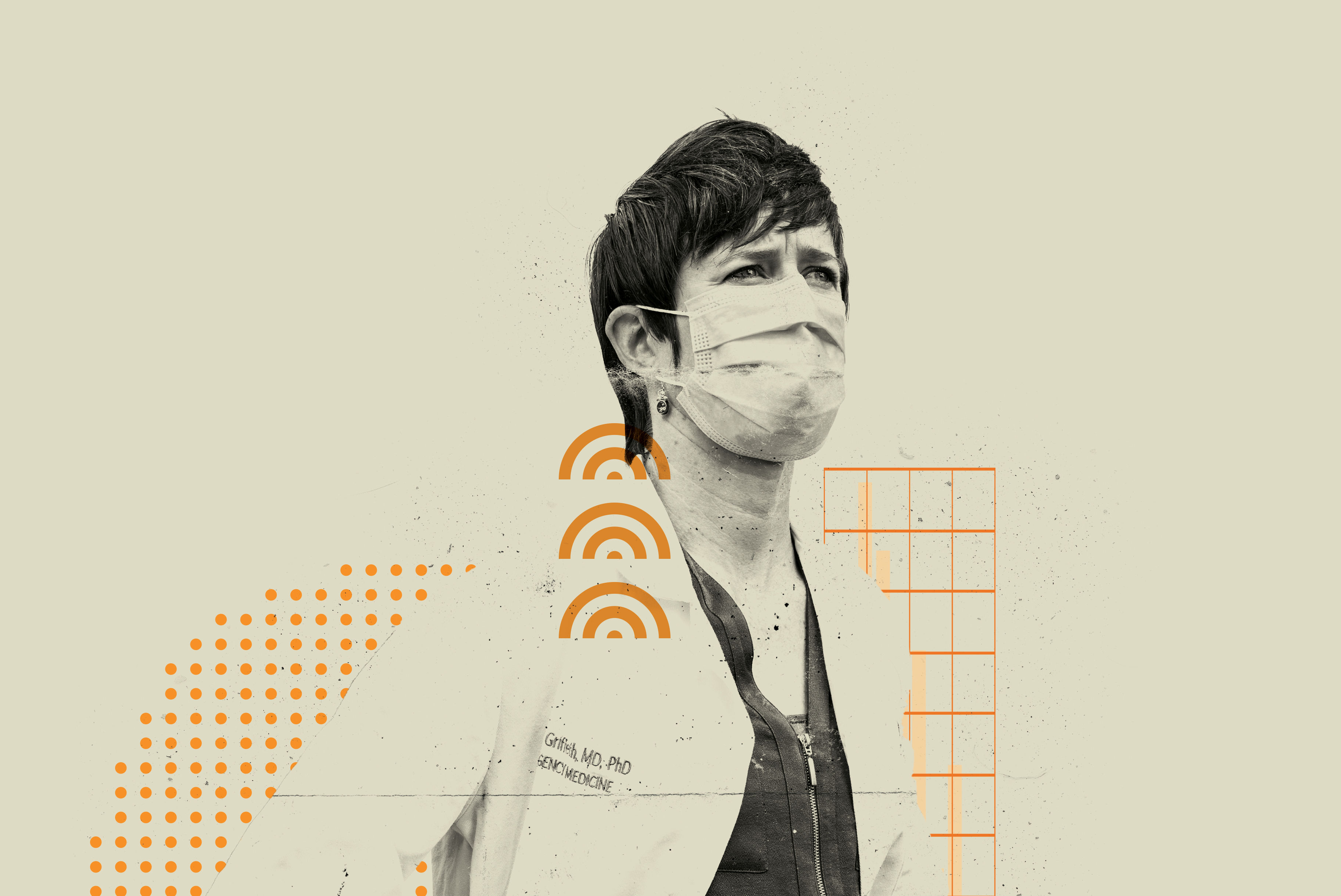Meet the Voice of Portland's Coronavirus Response

“We don’t think of ourselves as being resource scarce, even though in many ways we are, because we make health care so inaccessible to so many people,” Esther Choo says. “But it’s been really obvious that we haven’t challenged ourselves to think about how we allocate resources and how that can be done ethically and equitably.”
Image: Brian Breneman
Editor's Note: After the publication of this story in May 2020, Esther Choo was named in a lawsuit filed against OHSU on February 26, 2021. The lawsuit alleges Choo mishandled accusations of sexual assault from a VA employee in her leadership role. Please see our story here.
If Oregon medicine has a face of the coronavirus response, it belongs to Esther Choo.
The Oregon Health & Science University emergency medicine doctor is everywhere—on CNN, in the pages of the Washington Post and People Magazine, on your feed via her Doctor’s Log podcast, and on Twitter, where her followers number more than 100,000—advocating for the needs of her fellow caregivers and their patients and helping decipher the latest messages from the Trump administration.
It’s not as though she didn’t already have enough to do, as the cofounder of Time’s Up Healthcare, along with her ER shifts and ongoing medical research (not to mention four kids suddenly home around the clock). But the pandemic sent her into warp drive to help find solutions to the social and systemic shortfalls that led us here.
That’s how she got involved in Jupe, a start-up that’s building mobile rest, recovery, and ICU units to respond to the emergency bedding crisis.
“In all the discussion about equipment, there isn’t a lot of talk about where we put people and things,” says Choo. “If we get all the ventilators we need, where do the ventilators go? Where are the extra intensive care unit beds?”
Enter Jupe, a project launched in 2020 by an engineer/former public health researcher and an investment banker, who tapped Choo as chief medical adviser. They hope to create cheap, easily transportable, modular units for hospitals all over the world, to be used as rest areas for doctors, as space to isolate noncritical patients, and for intensive care.
With the first units expected to roll out this summer, Choo sees their use extending beyond the pandemic to disasters yet to come. And she won’t rest there. Having cofounded GetUsPPE.org with OHSU colleague Dr. Val Griffeth, she’s now raising the alarm about medication shortages emerging as the demand for sedatives and pain medications spikes during COVD-19.
“We need to be very scared about this because when this wave passes and we need to go back to regular care, we still need those medications, and we have not figured out how to boost the supply,” Choo says.
The idea of medical scarcity may seem at odds with how many Americans perceive their health care system, but Choo points out that some have been dealing with it all their lives. “We don’t think of ourselves as being resource scarce, even though in many ways we are, because we make health care so inaccessible to so many people,” she says. “But it’s been really obvious that we haven’t challenged ourselves to think about how we allocate resources and how that can be done ethically and equitably.”
She is concerned about the toll the disease is taking on communities of color, worries the pandemic decision makers “are not representative of the populations that are being hit the hardest,” and is thinking about how to build new frameworks for health care that don’t tend toward inequity. And so she records her podcast, shows up on CNN, tweets on the regular—all so we stay informed on how to keep health care workers and each other safe.
And still she manages to shift the spotlight to others she sees doing important work—like the food service employees at her hospital, who come into contact with so many medical workers, often without being given personal protective equipment, “and they just go to work and they don’t complain.” And the medical researchers, who are sprinting to stop this virus in its tracks. “It’s really a 24/7 effort so that we can get these studies done and done well and across institutions,” says Choo of the thousands working to gather and parse information against the COVID-19 clock, “so that very shortly we can tell people what works and what doesn’t.”




